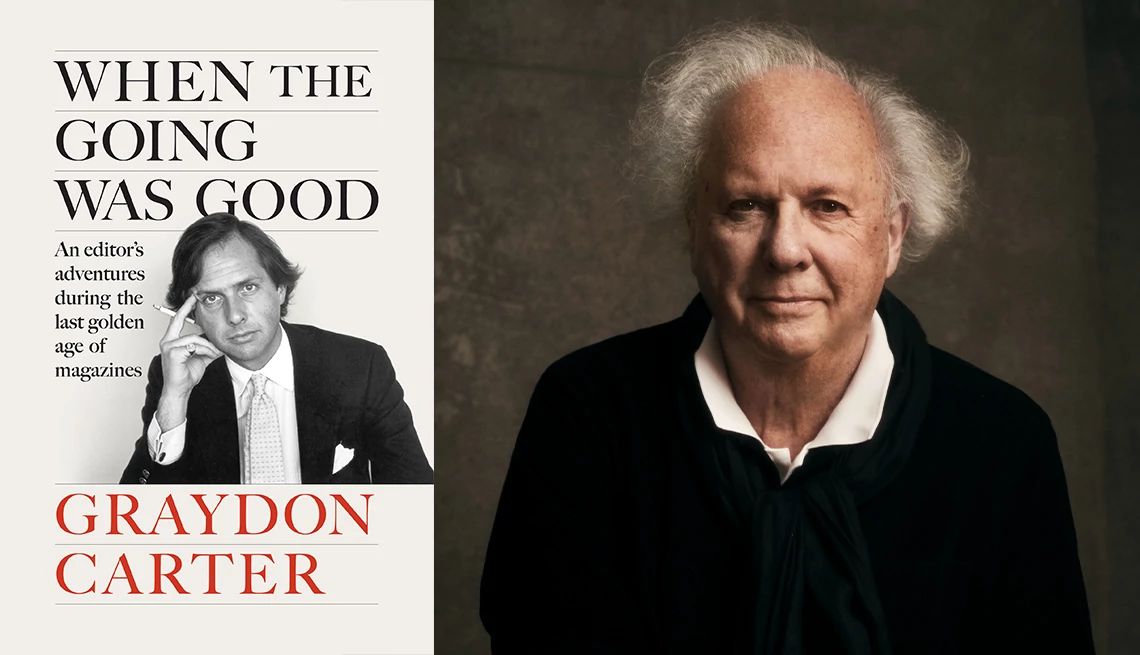AARP Hearing Center


Through no definitive plan and with no particular purpose, I have developed a haphazard set of rules that helped me navigate life and not look like too much of a fool in doing so. A good number of them I received from wiser souls on the long road. I do believe that young people — I have five children, as well as three grandchildren — could in some way benefit from them. Here are a select few, adapted from my new book, When the Going Was Good: An Editor’s Adventures During the Last Golden Age of Magazines (out March 25).
Put yourself in the movie.
This is an easy one — especially when it comes to dealing with others. When a confrontation arises, ask yourself: Are you the hero in this story, the villain, or someone in between? Would you root for yourself if you saw yourself in the film? You’d be surprised how useful this is in life. I have always tried to do the right thing, hoping that my actions would cause the objective me to root for the real me. It doesn’t always work, but it works better than not trying it at all.
Think F.I.S.K. when considering romantic partners.
I tell my kids that these are the essential ingredients you should look for in a mate: funny, interesting, smart, and kind. This is, obviously, an overlay of the physical attraction part. Funny and interesting, it almost goes without saying, are imperative. Same with smart. Kindness is highly underrated. But over the long haul, it pays off in dividends.
It’s not so much what you say yes to in life as what you say no to.
Don’t jump at the job opportunity simply for the money. Unless, that is, you’re in a dire situation financially, in which case, by all means, jump. Back when I was struggling at Time magazine, my first job in New York, I was offered the job of being the editor of something called Games magazine, a venture that was owned by the publisher of Playboy. Despite the fact that the job paid more than three times what I was making at Time, and even though my future at Time was rocky at best, I turned the Games job down. I had flipped through a number of issues and couldn’t for the life of me think of a way I could make the magazine better — or even keep it as good as it was. Also, I thought I would have children at some point, and I didn’t think that an association with Playboy was the sort of image I wanted my future kids to have of me.
Stay open for business.
When I first came to New York, I met the great Knopf fiction editor Gordon Lish. He was the most beautifully dressed man I had ever met up to that point. I remember he wore a tan suit, polished brown shoes, and tan wool socks with a blind cable design down the sides. (My first suit when I got to New York was a tan gabardine from Paul Stuart on Madison. And I bought a pair of socks similar to Gordon’s.) Anyway, his major bit of advice to writers — and it can be applied to anyone in any profession — was this: Stay open for business. Never shut yourself completely down. This can be applied not only to writing but to life itself. Always be open to a new line of endeavor. Be willing to say, “Oh, what the hell — sure!” I have traveled with Gordon’s words, and they are what got me not only into the magazine business but into the restaurant business and the business of making documentaries.




































































You Might Also Like
How the Neighborhood Dog Park Helped Me Fetch Some New Friends
Older adults are feeling lonelier than ever, but they might be able to find companionship at the end of a leash
He Finally Made It Into Space—at Age 90
Once expected to become the first Black astronaut, Ed Dwight takes the ride of his life
10 Fantastic Short Story Collections for Your Book Club
No time to read a long novel? A good story can give your group plenty to talk about